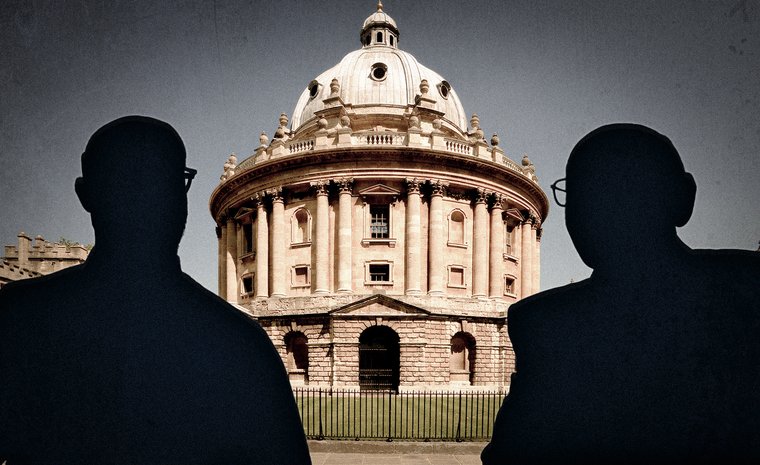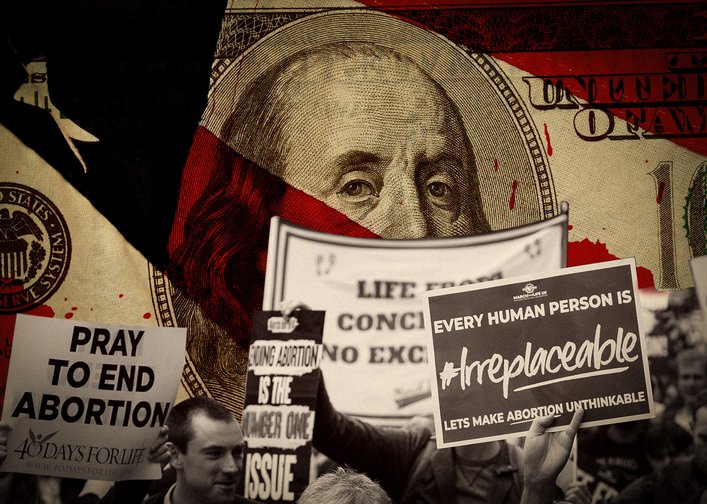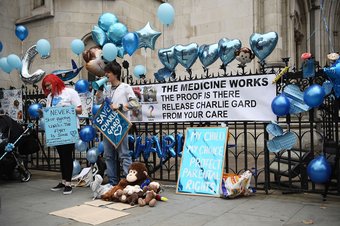UK
Academics call for transparency over university funding
Open letter follows openDemocracy investigation exposing the scale of dark money in higher education
Martin WilliamsJenna CorderoyopenDemocracy
7 April 2024

Anonymous donors have poured millions into top universities. |
Michael Dunning / Getty / Pexels
More than 120 academics, politicians and campaigners have signed an open letter calling for transparency over university funding in the UK.
It follows an investigation by openDemocracy that found more than £281m of anonymous donations had poured into so-called ‘Russell Group’ universities since 2017.
Documents revealed how previous attempts to improve transparency were met with “dismay” by many vice chancellors, who privately lobbied the government to keep the names of wealthy foreign donors secret.
Now, academics are calling for political parties to make manifesto commitments to ensure universities are open about their finances.
Get dark money out of UK politics!
Sign our petition to put pressure on the government to tighten electoral laws and shine more light on political donations. We need to know who is giving what to our political parties.SIGN UP
The letter, coordinated by openDemocracy, has been sent to the education secretary Gillian Keegan, as well as the shadow education secretary Bridget Phillipson. It warns that the reputation and integrity of universities could be “severely undermined” without proper accountability.
“There is currently no requirement for universities to be transparent – creating a real risk of money laundering and reputation laundering,” the letter says. “Transparency is also vital because of the potential influence that donors may have.”
The letter is signed by academics from leading universities including Oxford, Cambridge London School of Economics (LSE), Exeter, Bristol and University College London (UCL).
Other signatories include the former Labour shadow chancellor John McDonnell, the former Conservative attorney general Robert Buckland, Green MP Caroline Lucas and Labour’s Zarah Sultana.
The letter calls for urgent action, saying: “Legislation should be introduced requiring universities to publish a register of large donations and research funding”.
Similar measures were proposed in 2022, led by the Conservative MP Jesse Norman, but the rules were massively watered down by the government and Norman described it as a “missed opportunity”.
Emails obtained by openDemocracy exposed how the proposals were subject to a coordinated lobbying campaign by university bosses, in a bid to keep their funding secret.
Cambridge University’s former vice chancellor told a government adviser the university’s fundraising abilities could be “severely impacted” unless foreign benefactors remained anonymous. Other universities privately wrote of “celebration” after learning they could keep the identity of donors under wraps.
Figures released under the Freedom of Information Act show how dependent institutions have become on these secretive gifts, with much of the money coming from mysterious and controversial sources.
In one case, Oxford University accepted a £10m donation that was “facilitated” by the president of Azerbaijan’s sister-in-law. The university is so insistent on keeping the donor out of public scrutiny that it is going to court to block a Freedom of Information request from openDemocracy. The case is expected to be heard later this month.
In total, openDemocracy found the identities of 68 Oxford donors were kept anonymous since 2017, including at least ten who gave more than £2m each.
At Cambridge University, documents reveal its major benefactors have previously included fossil fuel giants, tobacco and arms companies. But the university is now fighting to keep a list of its recent donors secret.
In the open letter, academics warn of the potential influence that funders may have over university degrees.
Transparency is also vital because of the potential influence that donors may have. openDemocracy’s investigation last year found some universities had signed “very specific non-disclosure agreements” with big donors, which included a ban on releasing the names of projects being funded.
Other universities routinely invite fossil fuel companies to attend private meetings after donating millions of pounds. Some have taken direct advice from these companies over how to run their engineering and geoscience degrees, with one institution even holding discussions with an oil company about how to push back against “anti-oil rhetoric”.
A Department for Education spokesperson said: "While universities are autonomous, they should consider the ethical implications of any donations they are offered including on their duties regarding free speech and academic freedom.
"Higher Education (Freedom of Speech) Act gives the Office for Students powers to monitor overseas funding and require universities to provide details of gifts, donations, research grants and other income from overseas which is over a set threshold.”
Read the full open letter:
Dear Gillian Keegan MP and Bridget Phillipson MP,
(CC: Robin Walker MP)
As the Secretary of State and Shadow Secretary of State for Education respectively, you will both be aware of the impressive work done by British universities.
However, we write as a group of academics, campaigners, politicians and journalists to express our concern over the lack of transparency around university funding and the influence of major donors over academic courses.
Due to the difficult financial climate, universities have increasingly found it necessary to seek large amounts of money from private donors. These include wealthy individuals and big businesses, including many from overseas. But this is often shrouded in secrecy.
In December, an investigation by openDemocracy found that more than £281m had been donated to Russell Group universities by anonymous donors since 2017, much of it from foreign donors. It was also revealed that many of the UK’s top universities had privately lobbied the government to keep secret the names of wealthy foreign donors.
In one case, the University of Oxford accepted a mysterious £10m donation that was “facilitated” by the president of Azerbaijan’s sister-in-law. The university is so insistent on keeping the donor out of public scrutiny that it is going to tribunal to block a Freedom of Information request. The University of Cambridge is also fighting to keep its donors secret – but records show that its previous benefactors include fossil fuel giants, tobacco and arms companies.
Anonymous donations have often come from authoritarian countries where academic freedom is under threat. Yet there is currently no requirement for universities to be transparent – creating a real risk of money laundering and reputation laundering. Even when universities agree to disclose a donor’s identity, this usually only comes after submitting multiple complicated Freedom of Information requests – a process which can take months.
Transparency is also vital because of the potential influence that donors may have. For instance, openDemocracy found that some universities had signed “very specific non-disclosure agreements” with big donors, which included a ban on releasing the names of projects being funded. Other universities routinely invite fossil fuel companies to attend private meetings, after donating millions of pounds. Some have taken direct advice from these companies over how to run their engineering and geoscience degrees, with one institution even holding discussions with an oil company about how to push back against “anti-oil rhetoric”.
There is already cross-party support over this issue. In 2022, MPs led by Conservative backbencher Jesse Norman introduced proposals in the Higher Education (Freedom of Speech) Bill for a “duty to disclose” any foreign donor who gives a university more than £50,000. However, the legislation was massively watered down and Mr Norman described it as a “missed opportunity”.
We believe that the higher education sector is a great asset to the UK and we appreciate that universities require large amounts of money to continue their important work. But without proper transparency and accountability, there is a real risk that their reputation and integrity could be severely undermined.
We are therefore calling for manifesto commitments from the Conservative and Labour Parties to take urgent action to ensure universities are transparent about their finances. In particular, we believe that legislation should be introduced requiring universities to publish a register of large donations and research funding. For context, donations to political parties from UK citizens need to be publicly declared from as little as £2,230.
The financial integrity of British universities is crucial for the long-term national interests of this country and we hope that – whatever the outcome of the upcoming election – the government will take action on this issue. We would be delighted to discuss these issues in further detail with you. We are also happy to discuss any concerns you may have and to work constructively for the benefit of British universities.
Your sincerely,openDemocracy
Dr Bashir Abu-Manneh, University of Kent
Professor Katharine Adeney, University of Nottingham
Professor Paul Ashwin, Lancaster University
Dr Ed Atkins, University of Bristol
Dr Adam Badger, Newcastle University
Dr Adrian Bailey, University of Exeter
Dr Lucy Baker, The Open University
Emeritus Professor Ronald Barnett, University College London
Dr Pritish Behuria, University of Manchester
Matt Benwell, Newcastle University
Dr Eloïse Bertrand, University of Nottingham
Dr Gregorio Bettiza, University of Exeter
Professor Andreas Bieler, University of Nottingham
Dr Dan Bishop, University of Leicester
Alastair Bonnett, Newcastle University
Tom Brake, Director, Unlock Democracy
Dr Andrea Brock, University of Sussex
Professor Susan Bruce, Keele University
Sir Robert Buckland KBE KC MP (Conservative Party)
Professor Tony Burns, University of Nottingham
Campaign Against Arms Trade
Campaign for Freedom of Information
Dr Dario Castiglione, University of Exeter
Phil Chamberlain, University of Bath
Dr Joseph Choonara, University of Leicester
Andrew Chubb, Lancaster University
Dr Matteo Ciccognani, University of Leicester
Dr Corentin Cohen, University of Oxford
Professor Colin Davis, University of Bristol
Professor Mike Coombes, Newcastle University
Rachel Davies, Transparency International UK
Dr Filippo Dionigi, University of Bristol
Professor Claire Dunlop, University of Exeter
Dr Robin Durie, University of Exeter
Dr Irene Fernández-Molina, University of Exeter
Dr Joanne Smith Finley, Newcastle University
Dr Markus Fraundorfer, University of Leeds
Friends of the Earth
Dr Andreas Fulda, University of Nottingham
Professor Brandon Gallaher, University of Exeter
Dr Jasmine Gani, University of St Andrews
Dr Carlos Gigoux, University of Essex
Professor Samuel Greene, King’s College London
Professor John Heathershaw, University of Exeter
Dr Lise Herman, University of Exeter
Professor Eric Herring, University of Bristol
Professor Paul M Heywood, University of Nottingham
Dr Katie Higgins, University of Oxford
Dr Shabnam Holliday, University of Plymouth
John Holmwood, University of Nottingham
Imperial Climate Action
Dr Caleb Johnston, Newcastle University
Professor Lee Jones, Queen Mary University of London
Professor Steven Jones, University of Manchester
Dr Sobia Kaker, University of Essex
Emeritus Professor Terence Karran, University of Lincoln
Jinsella Kennaway, executive director of Demilitarise Education
Dr Istvan T Kristo-Nagy, University of Exeter
Dr Sarah Kunz, University of Essex
Dr Caroline Kuzemko, University of Warwick
Professor James Ladyman, University of Bristol
Professor Robert Lamb, University of Exeter
Professor Tomila Lankina, London School of Economics
Dr Jody LaPorte, University of Oxford
Dr Corinne Lennox, School of Advanced Study, University of London
Professor Stephan Lewandowsky, University of Bristol
Dr Matthew Lockwood, University of Sussex
Jake Lowe, executive director of Campus Climate Network
Caroline Lucas MP (Green Party)
Professor Simon Mabon, Lancaster University
Professor Simon Marginson, University of Oxford
Dr Olivia Mason, Northumbria University
Tom Mayne, academic
John McDonnell MP (Labour)
Dr Omar Shahabudin McDoom, London School of Economics
Professor Nick Megoran, Newcastle University
George Monbiot, author, journalist and environmental activist
Dr Alexander Morrison, New College, University of Oxford
Peter Munro, UK Anti-Corruption Coalition
Dr Lars Otto Naess, Institute of Development Studies
Professor Peter Newell, University of Sussex
James Nixey, Chatham House
Dr Kevork Oskanian, University of Exeter
Dr Catherine Owen, University of Exeter
Professor Ronen Palan, City, University of London
Professor Rich Pancost, University of Bristol
Dr Stuart Parkinson, Executive Director, Scientists for Global Responsibility
People & Planet
Professor Eva Pils, King’s College London
Professor Alison Phipps, Newcastle University
Professor Julian Preece, Council for the Defence of British Universities and Swansea University
Dr Tena Prelec, University of Rijeka & London School of Economics
Dr Alex Prichard, University of Exeter
Muhammad Ashikur Rahman, University of Leicester
Professor Jason Ralph, University of Leeds
Professor Sam Raphael, University of Westminster
Professor Brian Rappert, University of Exeter
Professor Madeleine Reeves, University of Oxford
Dr Eike Mark Rinke, University of Leeds
Dr Chris Rossdale, University of Bristol
Dr Kelli Rudolph, University of Kent
Professor Jason Scott-Warren, University of Cambridge
Professor Jan Selby, University of Leeds
Dr Amogh Dhar Sharma, University of Oxford
Professor John Sidel, London School of Economics and Political Science
Lord Prem Sikka (Labour Party)
Andrew Simms, New Weather Institute & Research Associate, University of Sussex
Professor Adrian Smith, Science Policy Research Unit, University of Sussex
Spotlight on Corruption
Dr Jac St John, University of Westminster
Professor Anna Stavrianakis, University of Sussex
Professor Andy Stirling, University of Sussex
Professor Doug Stokes, Exeter University
Zarah Sultana MP (Labour Party)
Dr Jason Sumich, University of Essex
Professor Richard Toye, University of Exeter
Dr Marietta van der Tol, University of Oxford
Dr David Wearing, University of Sussex
Kathryn Westmore, Royal United Services Institute
Professor David Whyte, Queen Mary University of London
Glynne Williams, retired associate professor, University of Leicester
Dr Ben Worthy, Birkbeck College
Professor Katrina Wyatt, University of Exeter













